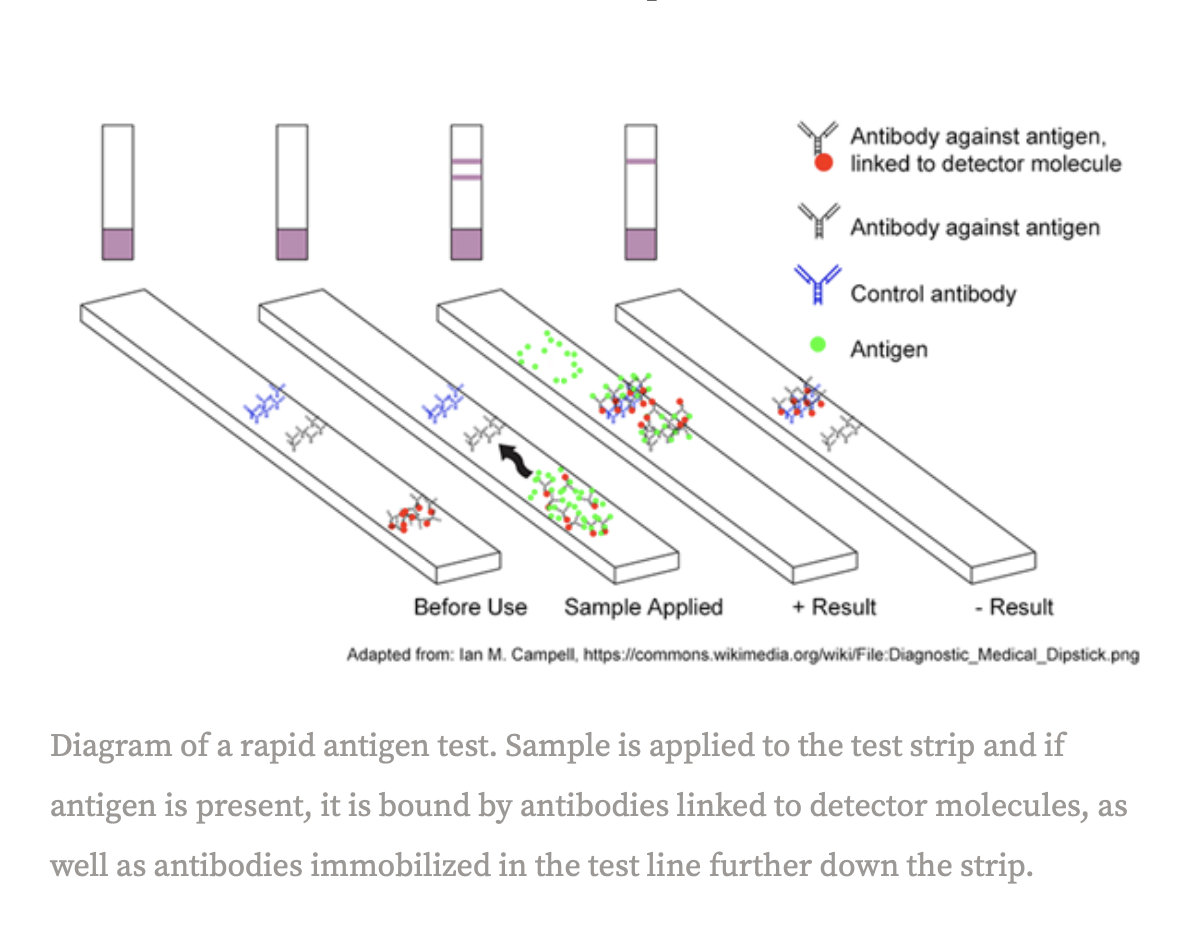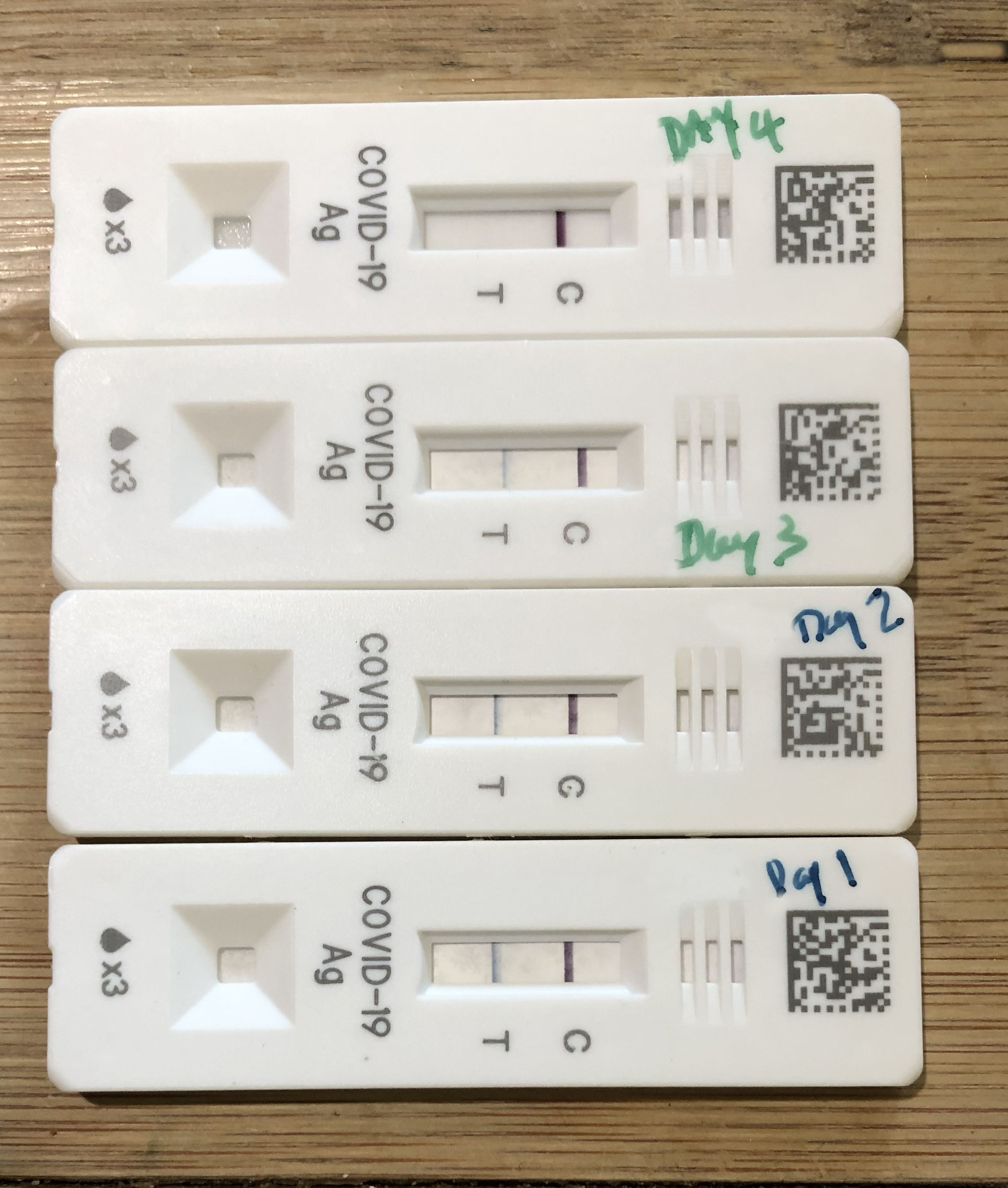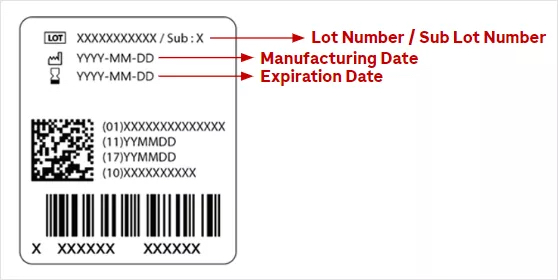Antigen Tests
Antigen Tests & False Negatives

Rapid antigen tests, like the free ones the government gives out (order yours for free here), detect molecules on the virus’s surface, called antigens.
Rapid Antigen tests are not sensitive and only show clearly positive at around 3,000 – 5,000 viral particles. You are infectious at 300 viral particles.
In other words, Antigen tests will only show positive after someone is already extremely contagious. A negative antigen test does not rule out having COVID. You may be contagious even when your antigen test is negative. False negatives on antigen tests are extremely common because you need a very high viral load (much higher than the viral load needed to spread COIVD to others) to get a positive antigen test result.
Antigen tests can determine that a person has COVID. False positives on an antigen test are extremely rare.
Testing Dos and Don’ts
Obtaining a good sample of the cells that live on your nasal walls is necessary for getting accurate test results. Performing the test incorrectly is another thing that may result in a false negative. The most accurate time to take nasal swab COVID tests is first thing in the morning before you brush your teeth, drink, eat, smoke, vape, irrigate, or shower. On mornings I plan to test, I put a note to myself on my sink so I don’t forget and brush my teeth before testing.
Before Your Test
Do:
– Blow your nose
– Wash your hands thoroughly
Don’t:
– Brush your teeth
– Drink
– Eat
– Smoke
– Vape
– Irrigate
– Shower
Using Antigen Tests to Monitor Viral Load

My favorite use for antigen tests is to objectively see if the amount of virus detected in an infected persons nasal swab is increasing or decreasing. (See picture above) The line labeled C is the control line and the T line is the COVID test result. The darker the T line- the more viral particles the test registered. This person followed the testing “Dos and Don’ts” and tested as soon as they woke up every morning. You can see how the blue T line gets lighter and then goes away as their viral load is decreasing.
“Expired” Antigen Tests

Many antigen tests have had their expiration dates extended past the date listed on the box label. If you still have “expired” tests sitting around, you can use this link to check to see if the expiration date has been extended. You’ll need the manufacturer, test name, original expiration date, and lot number.
